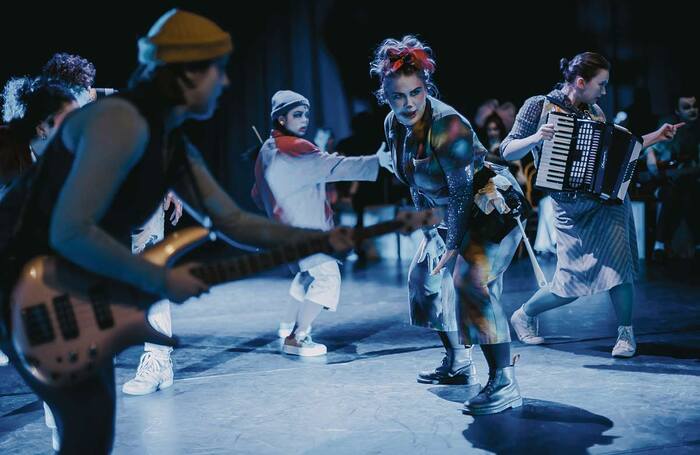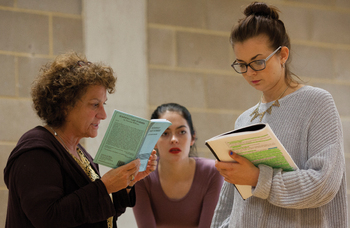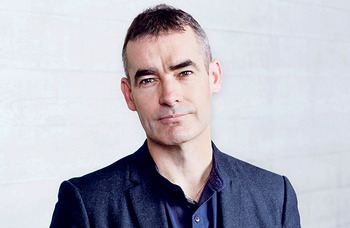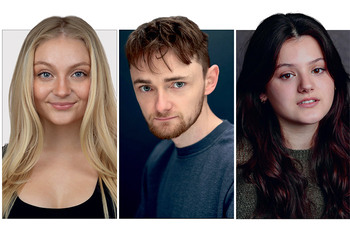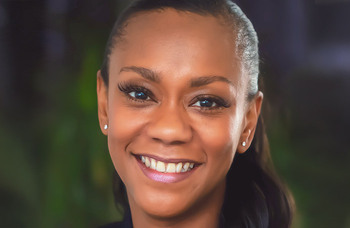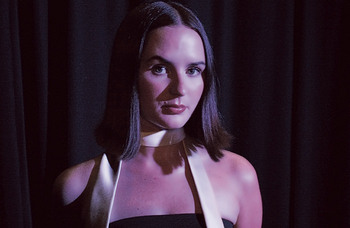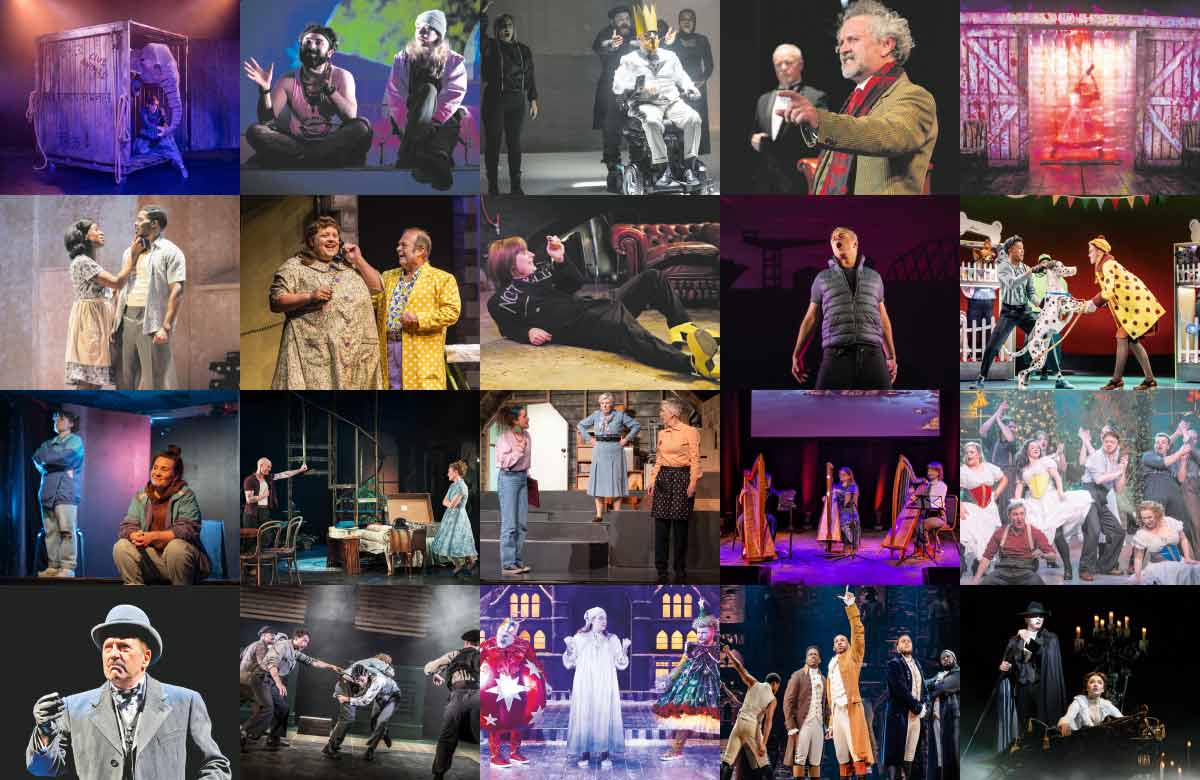Changing courses: how drama training is evolving to meet theatre industry demands
Drama schools are having to adopt a more collaborative and interdisciplinary approach to ensure students have the skills necessary to succeed in today’s world and the future. Leaders at some of the UK’s top institutions tell John Byrne how they are adapting their courses to keep up with the demands of an ever-changing industry
From established theatrical actors portraying supervillains in big-screen fantasy films, to movie stars selling out West End and Broadway runs of classic plays, to one-person fringe shows being developed into hit TV properties, high-profile ‘crossovers’ between stage work and other creative disciplines are a symbol of an ever-widening range of opportunities that actors can find on the other side of training.
However, to equip students to make the most of these developments, drama schools, which were historically focused on training up performers for relatively uniform stage careers, are also having to evolve to meet the demands of a rapidly changing industry.
“We want to enable graduates to work in any medium they want to, and to feel confident moving between different creative environments,” says Gilly Roche, head of interdisciplinary practice at Guildhall School of Music and Drama. “We do this by working with a team of teachers and external professionals who have up-to-date industry expertise in a range of performance mediums. We also create learning environments that reflect the types of environments students might encounter upon graduation. For example, in spring 2024, acting students watched the premieres of their own screen productions at the Barbican Cinema and showcased new work that they had written and performed as part of the multidisciplinary, end-of-year Making It Festival.”
Applicants whose aspirations to ‘make it’ are in the field of musical theatre are also likely to find an increasingly interdisciplinary approach informing courses they are considering.
‘We want to enable graduates to work in any medium they want to, and to feel confident moving between different creative environments’ – Gilly Roche, Guildhall School of Music and Drama
“At the Royal Conservatoire of Scotland, the BA Musical Theatre degree programme is the only one in the UK (possibly the world) that offers integration of actor musicianship skills alongside the traditional focus on acting, singing and dance disciplines,” says Jane Hensey, head of musical theatre. “The programme was established 15 years ago, predicting the industry shifts towards a demand for multi-skilled performer-creators and has continued to flourish and secure its reputation as being sector leading in this field.”
Hensey’s RSC colleague Mark Stevenson, interim head of BA Performance, says that, for one innovative course in particular, the interdisciplinary approach has proven particularly relevant: “The BA Performance degree for Deaf and Hard of Hearing Actors is the only three-year undergraduate programme of its kind in the UK. We exist to train Deaf performers to make a career in the performance industries.
Recognising the need for a broad-based portfolio, we develop skills in a variety of fields, including Acting for Stage and Screen, Creating New Work, Visual Theatre, workshop facilitation and short film writing and directing. Our students use either British Sign Language or spoken English.”
The programme has dedicated three-year training pathways, which prepare students for careers in different performance media: Actor and Script trains actors to develop performance from narrative theatrical text from fundamental basics, through scene study and monologue work to fully realised main stage productions. Actor and New Work develops devising and writing skills, which students apply to their own theatrical creations as well as adaptations of existing material.
Continues...

Over the three years, Script to Screen develops students’ ability to be actors in front of the camera, write their own short film scripts and finally act in and direct student-led shorts. They also take on production roles such as production planning, art department and editing.
“Where possible we also look to collaborate with other programmes,” adds Stevenson. “Working with stage management and design students is built into our theatrical productions while we work closely with colleagues in the BA Filmmaking department to realise our shorts. When timetables allow, we share practice across performances courses – both with BA Acting (in our Devised Theatre work festival and Industry Showcase) and BA Musical Theatre (for example, in an upcoming production of A Christmas Carol). This cross-fertilisation is valuable in that students not only learn from each other’s methods but also in developing an awareness of the richness of British Sign Language and its culture.”
‘At the Royal Conservatoire of Scotland, the BA Musical Theatre degree programme is the only one in the UK that offers integration of actor musicianship skills alongside the traditional focus on acting, singing and dance’ – Jane Hensey, Royal Conservatoire of Scotland
Presenting students with as broad a range of inputs and experiences as possible is an important aspect of interdisciplinary training, as Will Hammond, director of school of performance at the Liverpool Institute for Performing Arts, explains: “We have five acting degrees, each programme having a cohort of 20 actors per year: Acting, Acting (Contemporary Performance), Acting (Musicianship), Acting (Musical Theatre) and Acting (Screen and Digital). We enable integration of these distinct courses in a shared module, Artistic Practice.
“It brings together students from all the acting courses to share ideas and skills as they work together on creating original material for a diverse range of mediums and platforms. Training within a specialist performing arts institution, which actively encourages independent work, means students also get opportunities to work on a wide range of projects alongside their studies by collaborating with students from other courses including, filmmaking, sound technology, music and dance.”
Hammond says that across the programmes there is a common approach to actor training, with all students receiving the same core technical training.
‘[Our shared module], Artistic Practice, brings together students from all the acting courses to share ideas and skills as they work together on creating original material for a diverse range of mediums and platforms’ – Will Hammond, LIPA
“But every actor, like every person, is different – there isn’t a one-size-fits-all for successful actor training,” he adds. “We emphasise to our students the need for them to harness what is unique to them as a performer and encourage them to cherry pick the techniques and practitioners that work for them. Then through their specialism they are presented with a methodology by which they can select, adapt and interpret those skills according to different platforms and mediums.”
Philippa Strandberg-Long, director of actor training and drama school at LAMDA makes the point that other course leaders have also echoed: that diverse experiences need to be underpinned by a strong foundation.
“At the core of our training is the belief that strong acting skills form the foundation for success in any medium. We focus on core techniques that can be adapted to various performance contexts while fostering a deep commitment to ensemble work and collaboration. Our ethos centres on teamwork, making our students highly adaptable and enjoyable to work with in any setting – qualities that are essential in an industry where collaboration is key.”
Continues...
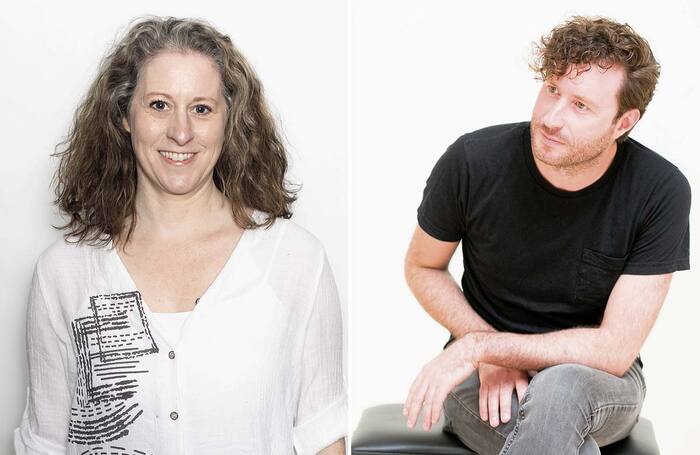
In addition to core techniques, students are guided through a comprehensive artistic journey supported by “artist development” sessions that cover reflection, resilience, writing, pitching and staying informed about current industry trends. “We also encourage imaginative exploration through improvisation, devising, and creating original work for both stage and screen,” she adds. “By placing ensemble work and collaboration at the heart of their development, we prepare students to be versatile, collaborative, and ready to thrive in a wide range of scenarios within the industry.”
Collaboration as a key skill is also a principle RADA’s Sinéad Rushe, lead tutor in acting, and Pamela Jikiemi, head of film, television and audio are keen to jointly espouse. They explain that actors with a clear understanding of working in digital environments can work in gaming, animation and podcasting and also point to a long tradition of actors writing at RADA.
‘At the core of our training is the belief that strong acting skills form the foundation for success in any medium’ – Philippa Strandberg-Long, LAMDA
Acting and technical theatre arts students also train together and industry-facing professional preparation is embedded in the core curriculum from an early stage of the training. They also say there are plans underway to create a regular Studio Scratch Night curated by students and alumni to test drive their own emerging new work.
Richard Patterson, head of the performance department at the Royal Central School of Speech and Drama agrees collaboration and networking are essential not only within the training environment but also in the wider industry.
“The RCSSD department of performance is supported by a large team of industry partners who deliver training and support the student experience as visiting professionals and visiting lecturers. This maintains a currency and relevance in the training the students receive and the opportunity to experience the true rigour, workings and expectations of the industry within the kind, safe and supportive environment of education.
“Public productions allow acting students to understand the broader landscape of the industry, as they work with visiting creative teams made up of visiting professionals and teams, but also our own staff and students. Within the two other academic departments of Central, students can engage in theatremaking with peers from other programmes of study that together represent the wider ecosystem of performance as an art form and industry. This networking not only produces a diverse and broad range of creative and original student work but will also provide links and opportunities for collaborative ventures beyond and outside of their time on the course.”
The Royal Conservatoire of Scotland’s BA Performance degree (for Deaf and Hard of Hearing Actors) recruits every three years. Applications are now open for September 2025 entry. Click here for details
Opinion
Recommended for you
Advice
Recommended for you
Most Read
Across The Stage this weekYour subscription helps ensure our journalism can continue
Invest in The Stage today with a subscription starting at just £5.99
 John Byrne
John Byrne